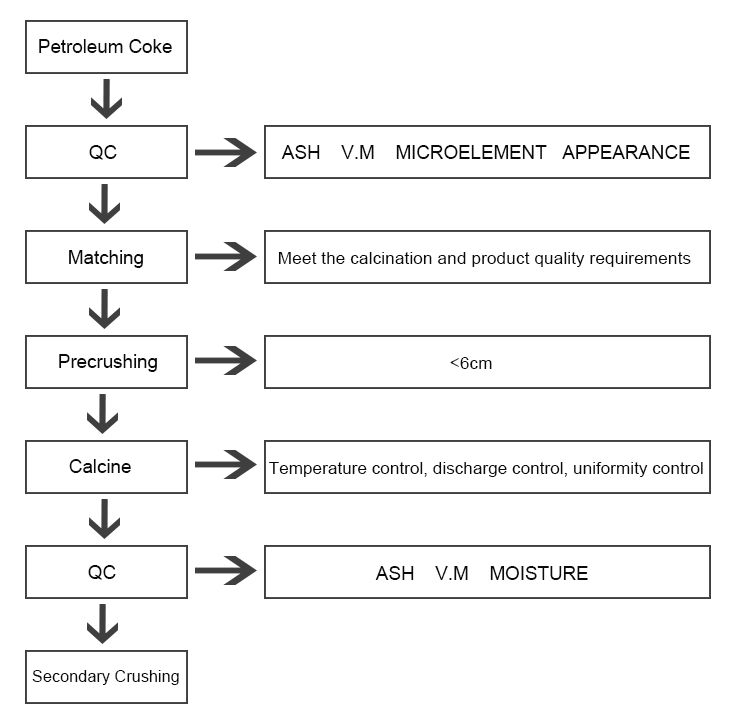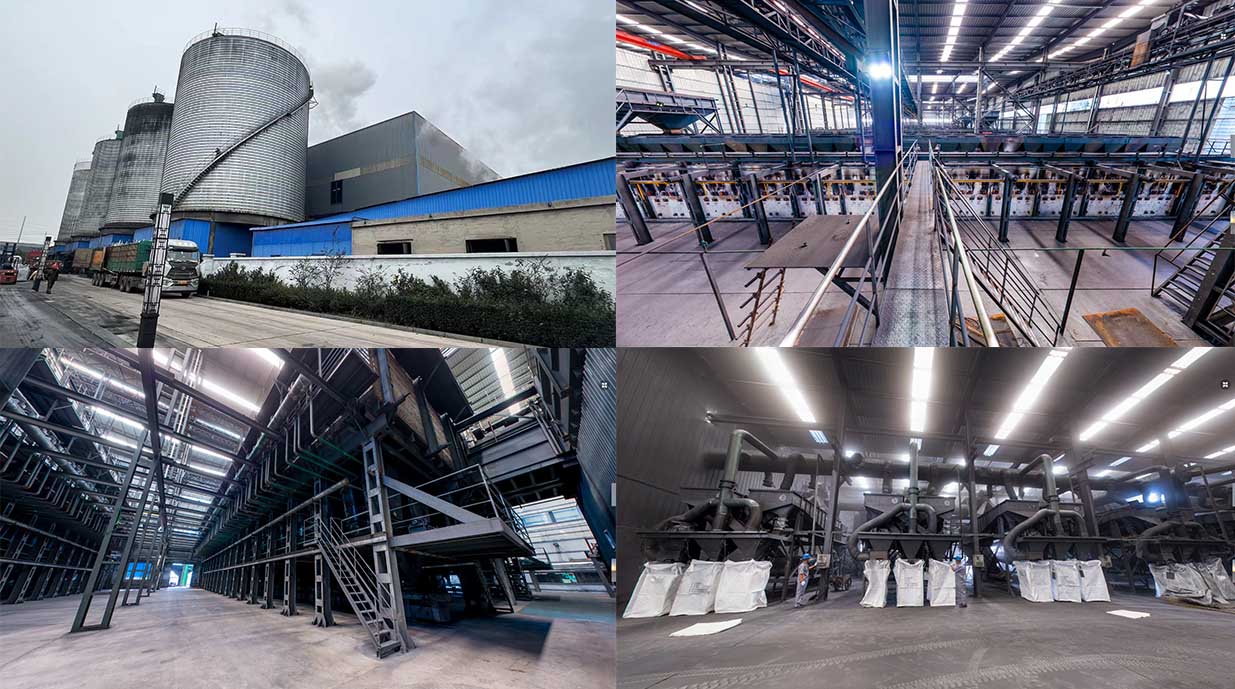China Calcined Coke - Old Manufacturer - Low Wholesale Price
Calcined coke, also known as petroleum coke, has various applications across different industries. Here are some of the fields where calcined coke finds use:
Aluminum production: Calcined coke is a crucial raw material in the manufacturing of carbon anodes used in the electrolytic process of aluminum production. The high carbon content and low impurities make it an ideal choice for this application.
Steel production: Calcined coke is utilized in the production of carbon electrodes used in electric arc furnaces for steelmaking. These electrodes provide the necessary heat and carbon to facilitate the steel melting process.
Fuel source: Calcined coke is often used as a fuel source in industries that require high heat, such as cement manufacturing, power generation, and various heat-intensive processes. Its high carbon content and energy efficiency make it an attractive alternative to traditional fossil fuels.
Carbon products: Calcined coke serves as a feedstock for the production of carbon-based products, including graphite electrodes used in electric arc furnaces, carbon brushes for electric motors, and various carbon additives used in metallurgical and chemical processes.
Titanium dioxide production: Calcined coke is utilized in the production of titanium dioxide (TiO2), a widely used pigment in industries such as paints, coatings, plastics, and paper. Calcined coke provides the carbon required in the chlorination process used to manufacture TiO2.
Refractories: Calcined coke is used in the manufacturing of refractory materials, which are resistant to high temperatures and harsh conditions. Refractories find application in industries such as cement, glass, ceramics, and petrochemicals.
Foundry and metal casting: Calcined coke is sometimes used as a carbon additive in foundry and metal casting processes. It helps improve the carbon content and adjust the carbon equivalent value of the molten metal, ensuring proper casting characteristics.
Chemical manufacturing: Calcined coke can be utilized as a raw material or catalyst in certain chemical processes, including the production of calcium carbide, carbon disulfide, and other chemicals.
These are just a few examples of the diverse applications of calcined coke across different fields. The specific usage depends on the industry requirements and the properties of the calcined coke used.
Advantage to using Calcined Petroleum Coke in prebaked anode
Calcined coke, also known as calcined petroleum coke, is a crucial ingredient in the production of aluminum. It is produced by heating green petroleum coke to remove volatile compounds and moisture, resulting in a higher carbon content and improved physical properties. The use of calcined coke offers several benefits in the production of aluminum:
Reduced energy consumption: Calcined coke has a higher carbon content, which means it contains more energy per unit weight. When used as an anode in the aluminum smelting process, it requires less energy to heat and melt the raw materials, leading to lower production costs.
Improved electrical conductivity: Calcined coke has excellent electrical conductivity, making it an ideal material for use as an anode in the Hall-Héroult process, the primary method for aluminum smelting. High electrical conductivity ensures efficient and consistent electrolysis during aluminum production.
Higher carbon content: Calcined coke typically has a carbon content of around 97-99%, which is significantly higher than regular petroleum coke. This higher carbon content allows for better heat dissipation and reduces the risk of anode cracking and failure during the smelting process.
Enhanced dimensional stability: The manufacturing process of calcined coke involves removing volatile materials and moisture, resulting in improved dimensional stability and reduced shrinkage during the anode baking process. This stability ensures the anodes retain their shape and structural integrity during the high-temperature smelting process.
Reduced environmental impact: The use of calcined coke in aluminum production can lead to a reduction in greenhouse gas emissions. The higher carbon content allows for lower anode consumption rates and subsequently lowers the direct emissions associated with the anode oxidation process.
Higher metal purity: The use of calcined coke helps maintain the purity of the aluminum produced. It ensures that there are minimal impurities introduced from the anode material during the smelting process.
Longer anode life: The superior properties of calcined coke, such as higher carbon content and dimensional stability, contribute to longer anode life. Longer-lasting anodes mean reduced downtime for replacement and maintenance, resulting in increased productivity and cost savings.
In summary, using calcined coke in aluminum production provides significant benefits, including reduced energy consumption, improved electrical conductivity, enhanced dimensional stability, and reduced environmental impact. These advantages make calcined coke an essential component in the aluminum smelting process, helping to improve efficiency and reduce overall production costs.











